Goals of a Red Rock Counseling Student Internship:
TRAIN competent, culturally aware, ethical student counselors who will provide exceptional psychotherapy services in a private setting to meet the needs of increasingly diverse communities.
PROVIDE practical face-to-face experience in the field while learning to help be prepared for the real-world side of a business-minded therapist.
STRIVE to empower students to embrace their full potential and to achieve their personal and academic aspirations.
SUPERVISE the skills necessary for academic success, personal growth, positive interpersonal relationships, and career development.
What is an MFT or CPC Student Internship?
Internship is the culminating clinical experience in a grad student training as a marriage and family therapist or clinical professional counselor. The internship provides students the opportunity to expand their exposure to clinical situations in settings and to additional clinical experience/training under the supervision of a licensed mental health professional in a practical real-world setting.
The purpose is for internship sites and supervisors to be aware of potential limitations in student interns regarding independent private practice activities.
Student interns will conduct individual, relationship or family therapy and or group therapy under the supervision of their supervisor to accrue their direct client contact hours not obtained during practicum courses. Therapy related activities will be the site supervisor’s responsibility and administrative supervision will be the responsibility of the educational institution.
Internship Site’s Duty to Educational Institutions:
For the educational institution we provide:
The supervision, reports, evaluations and other requirements of the internship
Guidance to ensure learning experiences critical to future practice
Effective levels of supervision, support and mentoring by professional staff
Feedback and input through evaluations of student’s progress level
Collaboration based on student’s site-evaluations
Supervision Goals:
Clear expectations about procedures, methods, and performance evaluation.
The relationship should feel solid to both participants with an agreement about what to do if either party feels there has been a rupture in the supervision relationship.
Careful attention is paid to case management, theory, and skills development, and the self-of-the-therapist.
A sense of open communication, trust, and focus on both areas for growth and current competencies.
Remembering that supervisors do not conduct the therapy with clients, supervisee's do.
Focus on the supervisee's goals.
An ability of the therapist to objectively and subjectively evaluate their own progress and competency as a therapist
Clinical internships are designed for students completing degrees toward an MFT or CPC.
Finding the Right Site for You:
Consider your goals, what kind of populations or therapy issues would you like to work with.
Keep in mind what you’d like to get out the experience other than achieving your required hours
Consider the agency or practice’s personality or business style
Visit more than one Approved Student Internship site to gauge the fit for you
Review their requirements to ensure it works for you
Meet with the person who is likely to be your site supervisor, you can consider it an interview of them
Ask around, know the site’s reputation and hear from other’s who might be familiar
Requirements for Student Interns:
Maintain professional liability insurance
Secure and pay for a monthly profile in Psychology Today.
Track hours and submit logs to site supervisor at the end of each semester.
Track client and supervision hours to submit required by graduate program.
Continue to treat clients through the entire internship period.
Attend a mandatory training before the first semester.
Attend monthly staff meetings.
Attend weekly supervision sessions with site supervisor.
Attend monthly Lunch & Learn trainings.
Commit to working at Red Rock Counseling for a minimum of two semesters.
Read AAMFT Ethics Guidelines, Nevada Administrative Code, Nevada Revised Statutes, Dress Codes, Emergency Plans for Violence, Aggression, and Suicide Plans.
Write blogs periodically.
What to Do First:
Attend a group interview.
Complete Learning Objectives Contract.
Review and sign a Supervision Agreement.
Calendar the dates & times you’ll need to remember.
Student Interns can expect supervision which includes:
Reviewing and receiving critique from faculty and peers.
Role-playing problematic scenarios encountered during the practicum/internship.
Discussing various therapeutic approaches and interventions.
Sharing by students their practicum/internship experiences and receiving support and suggestions from the instructor and peers.
Discussing ethical and legal issues that emerge during practicum or internship.
Providing support for students during internship.
Supervisors will Work to Determine:
What strengths does the student possess?
What struggles does the student appear to be having?
How is the student adapting to the site?
Is the student able to write effective, accurate, and concise case notes?
Does the student display the required counseling knowledge, therapeutic skills, and professional dispositions necessary for a professional counselor-in-training?
Can the student establish and facilitate the therapeutic encounter?
Can the student develop adequate treatment plans?
Does the student understand his or her current professional limits?
Can the student manage the caseload he or she has been assigned?
Can the student receive feedback without becoming defensive?
Does the student understand how to apply the code of ethics?
Can the student display both empathy and at the same time set appropriate boundaries with clients?
Should a client suddenly disclose that he or she is in crisis, would the student know how to proceed?
Does the student understand the seriousness of confidentiality?
How well does the student understand cultural issues in counseling?
Does the student get along well with staff and other colleagues?

